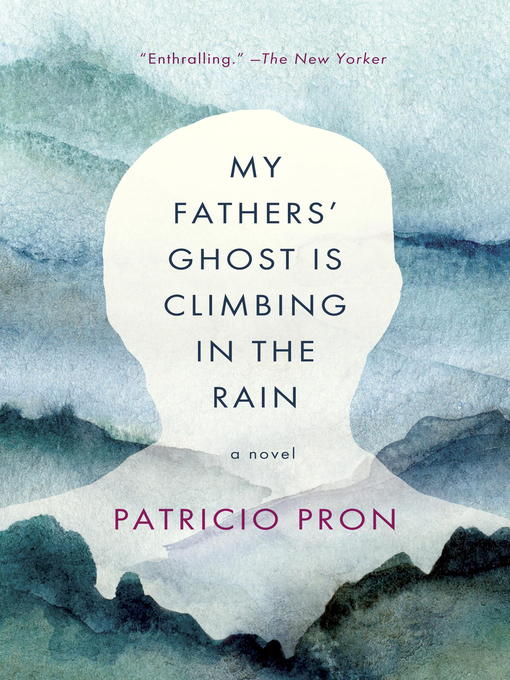
My Fathers' Ghost is Climbing in the Rain
کتاب های مرتبط
- اطلاعات
- نقد و بررسی
- دیدگاه کاربران
نقد و بررسی

March 11, 2013
Back home in Argentina to attend to his ill father, a young writer discovers the file his father kept on a recent disappearance and probable murder in his hometown. As he goes through the file, the son discovers not only the sordid details of the crime, but also its victim’s connections to Argentina’s Dirty War—during the ’70s when rightist generals disappeared members of the opposition. Although the novel’s second section consists largely of descriptions (repetitive and ungrammatical) of the attack on the hapless Alberto Burdisso, the book is fundamentally about memory and the consequences of its repression. When the writer—a stand-in for the author, whose father’s addenda to the text can be found on Pron’s blog—realizes that his journalist father was actively involved in the politics of that era, he recalls his childhood, filled with lots of hiding and precautions. The more the son learns, the more he remembers, and the resulting novel looks a great deal like the one he imagines his father writing: “Brief, composed of fragments, with holes where my father couldn’t or didn’t want to remember something.” In the face of denial and forgetting, Pron has stitched the experiences of the activists, their survivors, and those who came later into a narrative that ties the individual to collective memory and a family’s history to a nation’s.

March 1, 2013
A son returns from self-exile and comes to terms with his father's past, and his own, during the military dictatorship in Argentina; the fifth, largely autobiographical novel and American debut from this Argentine writer. It's 2008. The author's alter ego, whom we'll call P., has spent the last eight years in Germany at a university, obliterating his past with huge quantities of pills. Now, at age 33, he returns to Argentina on word that his father, known as Chacho, is in the hospital, dying. P. reunites with his mother and siblings, but his mental fog only lifts as he reads through folders on his father's desk. They contain journalistic reports of a man's 2008 disappearance in Chacho's hometown. The man, Alberto Burdisso, was a 60-year-old maintenance worker at the athletic club and a former schoolmate of Chacho's, whose interest in the case becomes clear with the mention of Burdisso's sister, Alicia. Chacho had been a journalist and a teacher of journalism; also a Peronist and leftist. He had taught Alicia and gotten her involved in politics. When she was "disappeared" by the junta in 1977, Chacho felt responsible for her fate. Alberto's own fate was sealed when the state gave him a sizable sum: reparations for his sister's murder. The money attracted the attention of lowlifes, who threw Alberto down a well, where he died. P. recognizes there's a symmetry between his father's search for justice for Alberto and his own search for Chacho's political identity. His father had been a target of the junta. When his sister reminds P. that their father self-sacrificingly searched their car for bombs before driving them to school, that opens the floodgates of memory. No more pills. P. now has a moral imperative to see that his parents' struggle against the dictatorship must not be forgotten. The concrete details of Alberto's case resonate more than P.'s abstract spiritual odyssey.
COPYRIGHT(2013) Kirkus Reviews, ALL RIGHTS RESERVED.

May 1, 2013
One of Granta's Best Young Spanish-Language Novelists, Pron was born in Argentina in 1975 and currently lives in Madrid. His English-language debut features a young writer who returns to Argentina from Germany to be present at the bedside of his dying journalist father. Rummaging through some papers, the younger man learns of his father's all-consuming fascination with the 2008 disappearance of Alberto Burdisso, who was cheated out of his reparation of 200,000 pesos for the politically motivated disappearance of his sister Alicia. As the mystery unravels, the narrator comes to realize that both his activist parents were complicit in Alicia's fate--thus the placement of the apostrophe in the English title. VERDICT With the recent elevation to the papacy of Argentina's Francis I, who himself lived through the terrible times when Argentina's military tortured and "disappeared" thousands of potential political enemies, the subject of Pron's engaging mystery narrative is especially timely. [See Prepub Alert, 11/26/12.]--Jack Shreve, Allegany Coll. of Maryland, Cumberland
Copyright 2013 Library Journal, LLC Used with permission.

























دیدگاه کاربران